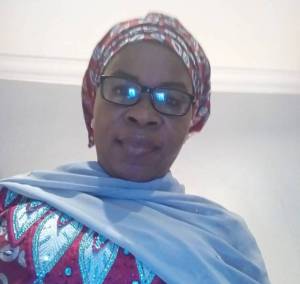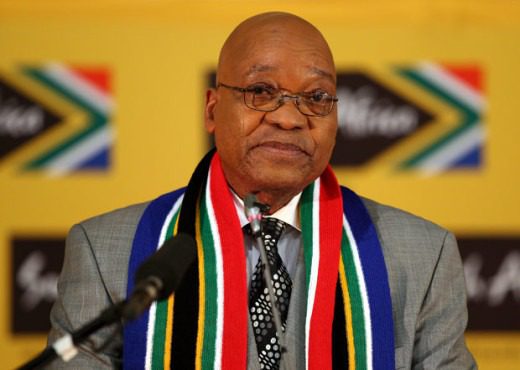Global Issues
Rape and the Uncertain World of the Girl-Child -By Zainab Suleiman Okino
I’ve watched a 15 year-old breastfeeding a child of about 10 months. The girl was said to have been raped by her step-father, and her mother, out of shame and stigmatisation, dumped her daughter and the new baby with her grandmother. The girl’s countenance exposed her innocence and vulnerability, baby or not.

Everyday when you hear of rape cases, you wonder whether the world has gone bananas; what has come of humanity that it now preys on its own, the women folk. Long before the case of Uwa Omozuwa, the University of Benin student raped to death in a holy sanctuary, a Church, rape had already become a pandemic, sort of; and globally, that is.
Early this year, in Kogi State, governmental machinery and power was used to commandeer one Elizabeth Oyeniyi from Okene to Lokoja, only to be bratalised, humiliated and raped by a serving commissioner of water resources, Abdulmumuni Danga. The government promised to investigate the matter, but silence has since followed and no one has been prosecuted or is talking about this.
Such was the hush, stigma and aloofness of the society about rape over the decades until now, hopefully. The inspector general of Police recently ordered investigation into the alleged rape of one Seyitan Temidayo in 2018 by a celebrity artist, D’banj. Last year, the social media went agog, followed by protests in Abuja over the alleged rape of Busola Dakolo by Pastor Biodun Fatayinbo of COZA church. Only a few days ago, a serial rapist was arrested in Dangora, a small town in Kano, after he had committed at least 40 repeats of related offences. And yet, there are cases of Barakat Bello in Oyo State and Tina Ezekwe in Lagos State, who were gang-raped and killed in the process. These are just a few cases that have come to the fore in recent time.
The global statistics is equally appalling. In 2018, there were at least 734,630 reported cases of rape in the U.S. and nearly one out of five women have been raped at some time in their lives by an intimate partner, acquaintance and total strangers even. In India, a rape is reported every 15 minutes, according to the country’s National Crime Records Bureau, while 90 women are raped everyday. In 2017 alone, 359,849 cases of such crimes against women were reported.
What makes the rape menace in Nigeria worrisome is the lack of data that could alarm and push the populace to take a stand against it and for the law enforcers to recognise it as a crime and tyranny of the strong.
This has been the missing gap here, even though UNICEF’s 2015 report indicated that one in four girls and one in ten boys are said to have experienced sexual violence before the age of 18. The 2006 Amnesty International report worried that “the federal government does not make public any records it holds of incidents of gender-based violence in general nor of rape in particular”. I’m not sure much has changed on the part of government, despite launching the Sex Offenders register last year, other than the consistent efforts of NGOs on the subject matter.
Another dimension to our rape reality is the stark revelations that accompany kidnapping and banditry. For every kidnap or raid that takes place, almost all the female victims are raped. When armed robbers break into a house, chances are that the women, especially the teenage girls would be subjected to rape. Because of stigma, rejection and even punishment and absence of institutional support, families of concerned victims pay ransom and live with the rape trauma for the rest of their lives, if they survive the experience.
Rape is no tea party, but it is a strategic weapon in the Syrian Civil War, applied by the pro government supporters and members of the Free Syrian Army. Watching Silent War, a documentary on rape in Syria on Al-Jazeera brought home the monstrosity of rape in the war-torn country; it was taken to the lowest level of bestiality, as the regime’s men pounced on innocent women in prisons, homes and roadblocks and raped them for participating in demonstrations against the government. At a time, the rape scenes were recorded and sent to brothers, husbands and fathers of victims fighting against the regime.
The rape issue in Syria is horrendous, depressing and shattering. Women are raped by gangs, one after the other, and in turns, in the full glare of families. It is both a weapon for humiliation and punishment of victims, who are sometimes killed by male members of their family – fathers and brothers, in what is called honour killing, to avoid shame and protect the image of the family in what can be likened to double jeopardy for the victim. “We are trapped between traditions on one side and the regime on the other hand. And we die caught in-between”, says one of the Syrian women.
If the Syrian case went from bad to worse, owing to the prolonged civil war, what is the excuse of rapists all around us, defiling children as young as three months, as happened in Nasarawa State and reported by Daily Trust this week? The Edo and Oyo cases that went viral got our lawmakers to begin to act. A bill to that effect is being considered in the Senate. The bill seeks to criminalise rape and protect victims who, going forward, will be able to testify in court; and provide for legal and institutional frameworks for reintegration of victims against what currently happens, where even police don’t entertain rape complaints and instead treat it as domestic issue.
I’ve watched a 15 year-old breastfeeding a child of about 10 months. The girl was said to have been raped by her step-father, and her mother, out of shame and stigmatisation, dumped her daughter and the new baby with her grandmother. The girl’s countenance exposed her innocence and vulnerability, baby or not. The extreme form of this madness manifests in fathers committing incest with their daughters.
While these are a few recent cases, many adults today, who had been victims of rape, are experiencing psychological imbalance, as well as debilitating trauma that have left them broken for life. At least, I know a lady who was raped by her elder sister’s brother-in-law in the 1990s. She was just a teenager then. The product of that bitter experience is himself an adult now, but the scar has remained with his mother, who has vowed never to have anything to do with any man in her life.
Such is the injury, hurt and psychological disorder that rape inflicts on women, that we must all wake up to create a bulwark against it. We should take responsibility, and report any suspicious case around us. But the greatest responsibility is on government to provide an enabling environment to protect victims and prosecute offenders. This impunity has to stop, because silence is no longer an option.
zainabsule@yahoo.com, www.zainabokino.blogspot.com.




















